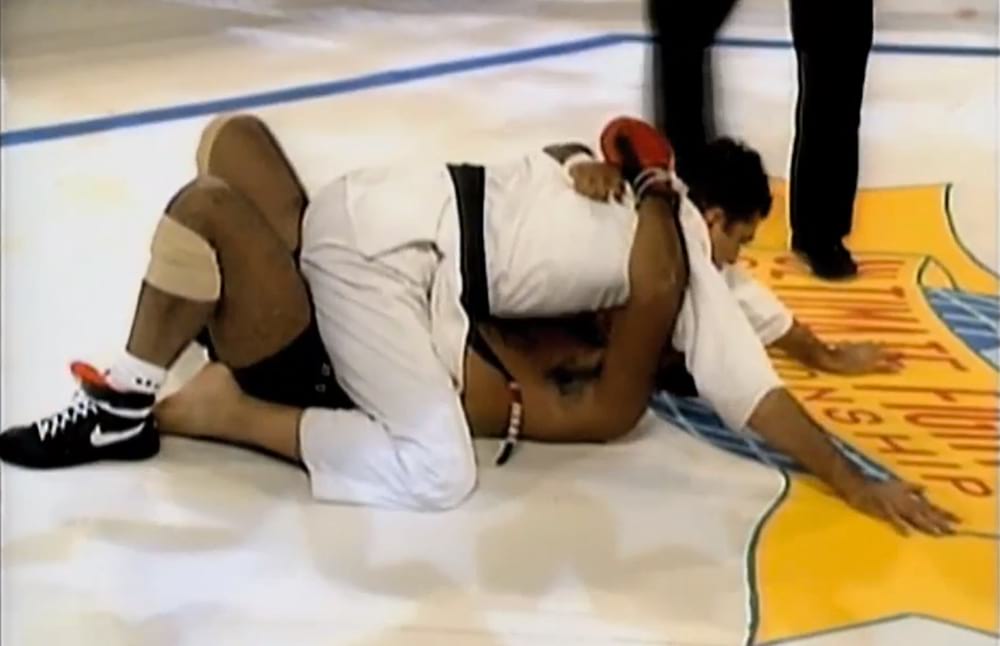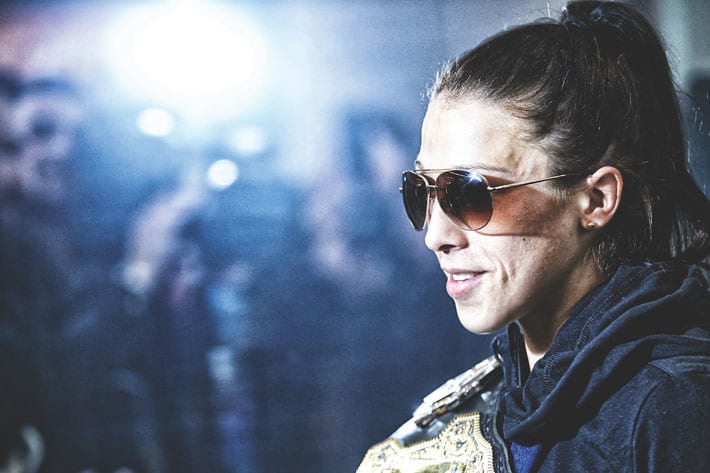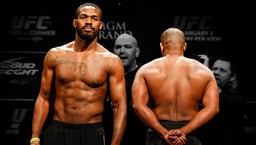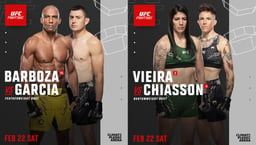No other professional sport tosses around terms like great, greatness and the greatest as freely or haphazardly as mixed martial arts. This gluttony, this overuse, speaks to the sport’s relative youth, its naivety, its ignorance and its impatience. It wants to catch up. It’s in a hurry to catch up. It wants the history of boxing and other combat sports. It yearns for the day it can create a 100 greatest fighters of all-time list and for it to actually mean something.
All in good time. UFC 1 was only 24 YEARS AGO. And BJ Penn, ‘The Prodigy’, is still fighting. Basically, this child intent on running before it can even crawl, is barely a quarter of a century old. So, for it to expect any kind of history or legacy is ambitious at best, deluded at worst.
Which is not to say it lacks legitimately great fighters and great fights. There are plenty of examples of both and the Mount Rushmore of MMA, something fans like to discuss from time to time, triggers many a debate and could conceivably comprise fighters from Royce Gracie, Chuck Liddell, Tito Ortiz and Randy Couture to Anderson Silva, Fedor Emelianenko and Georges St-Pierre, to Jon Jones, Ronda Rousey, Conor McGregor and Demetrious Johnson. See – plenty to choose from. And, make no mistake, there will be many more candidates vying for a spot in the future.

This year, though, is an example of what happens when the sport gets ahead of itself and bizarrely wants to call every fighter a farm yard animal – The GOAT (Greatest of All-Time). In July, it was Jon Jones. He’d just returned from a suspension, embraced his inner bad boy, and kicked Daniel Cormier so hard in the head he disconnected the UFC light-heavyweight champion from his senses and his title reign. More than a simple redemption story, it was, many felt, the crowning moment in an illustrious career, one without proper defeat (sorry, Matt Hamill). It was, essentially, proof of his GOAT-ness.
But then Jon Jones did what Jon Jones is seemingly predisposed to do and f**ked it all up. Which meant, come October time, when Demetrious Johnson pulled off arguably the submission of the year on poor Ray Borg, it was time to herald the arrival of a new GOAT. This one, ‘Mighty Mouse’, was the hardcore fans’ favourite, a man as thrilling and technically dazzling as he is relatively anonymous in the eyes of the general public, a man who shattered Anderson Silva’s record of 10 consecutive UFC title defences. Even Dana White, the UFC president and formerly Johnson’s biggest critic, came around to the idea of DJ being as good as it gets. “Definitely,” White said when asked if Johnson was the greatest to ever do it. “He’s the man. He broke Anderson Silva’s record, and it almost seems like in that last round he knew he was going to do it and he knew how he was going to do it. It was pretty impressive.”
This view stuck for a month, which allowed Johnson to enjoy newfound popularity and acclaim, before Georges St-Pierre returned following a four-year hiatus, submitted Michael Bisping, the UFC middleweight champion, and jogged a few memories in the process. If not quite usurped, Johnson, a flyweight accustomed to being overlooked, all of a sudden had a pound-for-pound peer, a rival, just as he’ll have a one next year and the one after that. That’s the problem with quantifying and ranking an active fighter’s greatness, you see. You’re forever on a hiding to nothing. (Nobody was calling ‘Sugar’ Ray Robinson the greatest boxer of all-time in 1946, the year he won the world welterweight title – he still had more than a hundred fights to go.)

If you think the men are fickle, however, spare a thought for the treatment of those at the top of the women’s game. Because this is where the sport’s impatience and innocence really shows. (After all, women’s MMA is essentially a newborn at this stage and the first ever female fight in the UFC, Ronda Rousey vs. Liz Carmouche at UFC 157, took place less than five years ago.) Hot on the heels of Ronda Rousey, who was once great, unbeatable and ‘the female Mike Tyson’, the latest fighter to be labelled the greatest female fighter in MMA history is Joanna Jedrzejczyk. Scrap that. The latest fighter to be labelled the greatest female fighter in MMA history was Joanna Jedrzejczyk. But then, on Saturday night (November 4), she lost a fight in the first round and lost her UFC women’s strawweight title in the process. Now she’s probably not the greatest female fighter of all-time. At least for the time being. At least until she starts winning again. Until she looks great again.
Jedrzejczyk lost to Rose Namajunas, possibly the new greatest female fighter in history, at UFC 217. She succumbed in the first round, by TKO, tapping to strikes, an upset every bit as cataclysmic as the one Rousey suffered in 2015 at the hands – and feet – of Holly Holm. It was similarly unexpected, shocking, damaging. It framed Jedrzejczyk no longer as the invincible champion she had become but as a vulnerable and reckless striker picked apart by a focused challenger who was calmer in the pocket and possessed a left hook from hell. Far from scary, ‘The Boogeywoman’ looked human, normal, and utterly beatable.
The question is, then, can a GOAT lose in such a manner and still be considered a GOAT? Well, the answer, to my mind, is this: Jedrzejczyk’s defeat to Namajunas damages her legacy about as much as her previous 14 wins defined her greatness. The truth is right down the middle, which is to say five UFC title defences an MMA great does not make, nor should one defeat, as devastating as it might have been, recast Jedrzejczyk as some kind of overhyped champion with no future in the sport.
Deal with the facts, rather than fantasy and forecasts, and things start to make a bit more sense. You’ll understand why Saturday’s events shouldn’t alter the fact Jedrzejczyk’s win over Jéssica Andrade at UFC 211 was arguably one of the finest displays of striking ever witnessed in an Octagon. Nor should it erase wins against the likes of Karolina Kowalkiewicz and Cláudia Gadelha, both of which helped propel Jedrzejczyk to the top of the division and set her apart from the rest. It all counts. The wins, the defeats. It all makes up a fighter’s history, their legacy, their greatness.

Joanna Jedrzejczyk has just turned 30 years of age and has 15 professional MMA fights to her name. She’s won 14 of them, been brutally knocked out once, and will return to the Octagon and presumably win many more. First, though, she will dust herself down and prepare for the next chapter of her career, a chapter thumbed by every great champion in MMA and boxing. She must overcome the first loss of her career and look to one day, either immediately or somewhere down the line, get her belt back.
Should this happen, they might start calling her great again. They might even start calling her the greatest of all-time again. And it will be wrong to do so, just as it was wrong to speak in similar terms ahead of her fight with Rose Namajunas at UFC 217.
Now belt-less, Jedrzejczyk called herself Joanna Champion for a while. Not Joanna Legend. Not Joanna The Great. Not Joanna GOAT. Once upon a time she was a champion, just a champion, arguably the best in women’s MMA’s short history, and well on her way to breaking faces, records and hearts.
But now she’s not.













